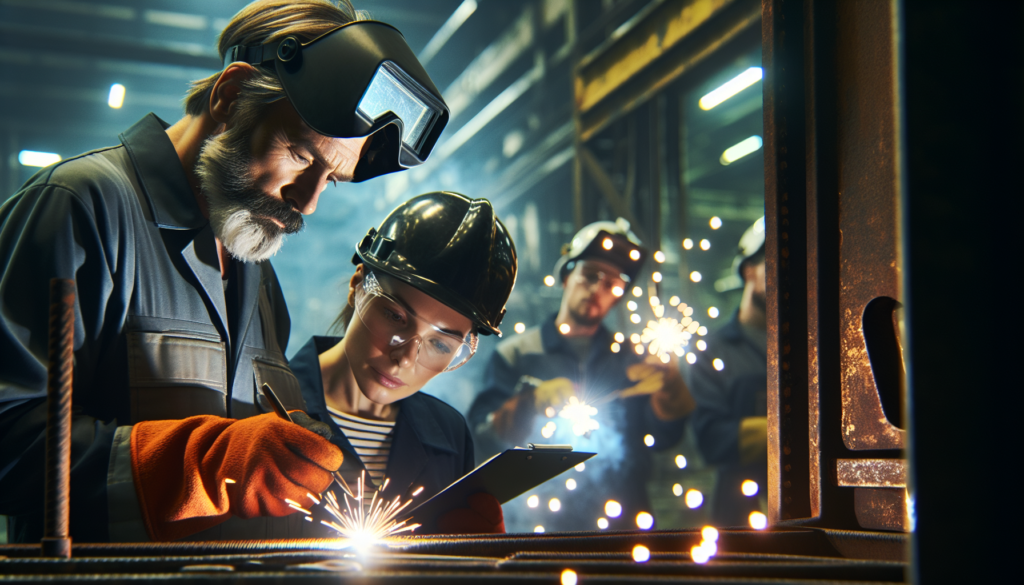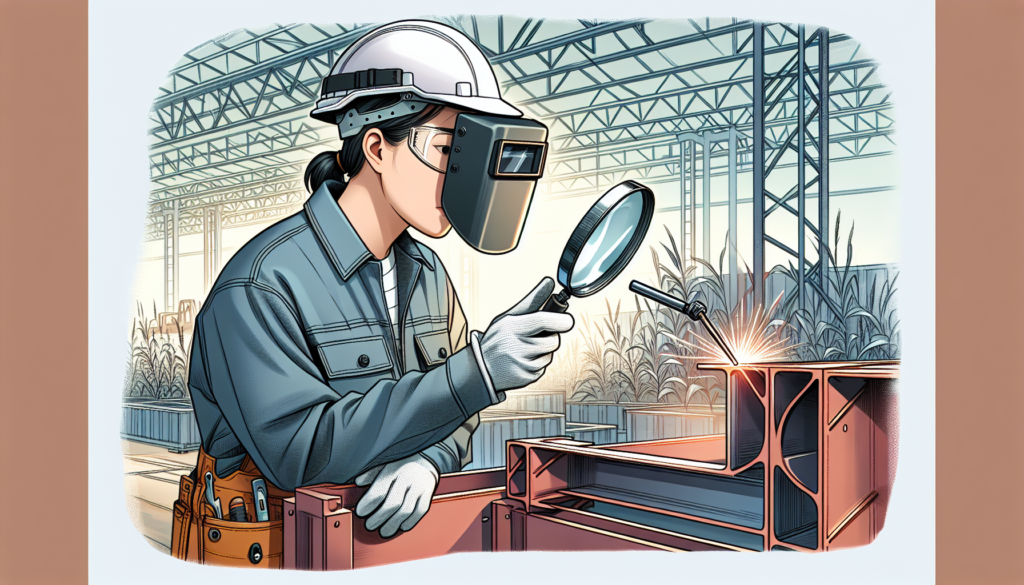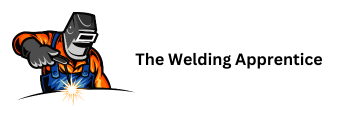Are you fascinated by the art of welding and ensuring the structural integrity of metal components? Then the role of a Certified Welding Inspector might just be the perfect fit for you. Certified Welding Inspectors play a crucial role in ensuring that welding processes meet industry standards and specifications. With their trained eyes and keen attention to detail, these inspectors meticulously examine welds, ensuring they are free from defects and meet all necessary safety requirements. Join us as we explore the world of Certified Welding Inspectors and gain insight into the essential work they perform to ensure sturdy and reliable metal structures.

What is a Certified Welding Inspector?
A Certified Welding Inspector (CWI) is a highly skilled professional responsible for ensuring the quality and safety of welding processes in various industries. CWIs play a vital role in maintaining the integrity of welded structures and ensuring compliance with industry standards and codes. They possess extensive knowledge of welding techniques, codes, and standards, and are trained to conduct inspections, evaluate weld quality, and identify potential defects or failures.
Becoming a Certified Welding Inspector
Education and Training Requirements
To become a CWI, you need to fulfill certain educational and training requirements. Typically, a high school diploma or equivalent is required, but having relevant higher education, such as an associate or bachelor’s degree in welding technology, can provide a solid foundation. Additionally, completing a formal welding training program from an accredited institution can enhance your qualifications.
AWS Certified Welding Inspector (CWI) Exam
To obtain CWI certification, you must pass the AWS Certified Welding Inspector exam. This comprehensive exam evaluates your knowledge of welding processes, codes, and standards. It includes both written and practical portions, covering topics such as welding fundamentals, welding inspection, and non-destructive testing techniques. Successfully passing this exam demonstrates your competency as a CWI.
Renewal and Recertification
CWI certification is valid for three years, and it is essential to renew your certification to maintain your professional status. To recertify, you must accumulate a certain number of professional development hours, which can be earned through various means such as attending seminars, workshops, or training courses related to welding inspection. This ongoing commitment to professional development ensures that CWIs stay updated with the latest industry advancements and standards.
Roles and Responsibilities
Ensuring Welding Standards and Codes Compliance
One of the primary responsibilities of a CWI is to ensure compliance with welding standards and codes. They thoroughly examine welding procedures and weld joints to verify if they meet the specifications outlined in the relevant codes, such as the American Welding Society (AWS) codes. By enforcing these standards, CWIs ensure that the welded structures are safe, durable, and meet the industry’s quality requirements.
Inspecting Welding Procedures and Equipment
CWI inspects welding procedures and equipment to ensure their suitability for the intended purpose. They assess the welding techniques used, electrode handling practices, and the overall setup of the welding process. By conducting regular inspections, CWIs can identify potential issues or deficiencies in the welding equipment and suggest corrective actions or modifications to enhance the welding process’s efficiency and effectiveness.
Monitoring Welding and Other Related Activities
CWI’s are responsible for monitoring all welding activities throughout a project. They oversee the welding personnel, checking their compliance with safety procedures and ensuring they follow proper welding techniques and practices. Additionally, CWIs monitor the environmental conditions during welding operations, such as temperature, humidity, and ventilation, to ensure they are within the acceptable range for welding processes.
Conducting Non-Destructive Testing
Another crucial responsibility of a CWI is to conduct non-destructive testing (NDT) to assess the quality of welds. NDT techniques, such as radiography, ultrasonic testing, magnetic particle testing, and liquid penetrant testing, help identify any internal or surface defects in the welded structure without causing damage. CWIs have the expertise to interpret NDT results, ensuring that welds meet the required quality standards.
Documentation and Reporting
CWI’s are meticulous when it comes to documentation and reporting. They maintain detailed records of all welding activities, including weld procedures, inspection reports, NDT results, and any deviations from the welding standards. These reports serve as valuable references and provide evidence of compliance for regulatory authorities, clients, and stakeholders. Accurate documentation is crucial in maintaining transparency and accountability throughout the welding process.
Skills and Qualities of a Certified Welding Inspector
In-Depth Knowledge of Welding Processes and Techniques
A CWI must possess extensive knowledge of welding processes and techniques. They should understand the characteristics, benefits, and limitations of various welding methods, such as arc welding, gas welding, and resistance welding. This knowledge enables them to evaluate welding procedures, identify potential defects, and ensure proper execution of welding processes.
Proficient in Welding Codes and Standards
Familiarity with welding codes and standards is a fundamental requirement for a CWI. They should have a thorough understanding of industry-specific codes, such as those set by the AWS, as well as related regulatory requirements. This proficiency allows them to assess weld quality against the established standards and communicate any deviations or non-compliance appropriately.
Attention to Detail and Analytical Skills
Attention to detail is essential for a CWI to detect even minor defects or deviations in weld quality. They must possess sharp observational skills and have the ability to identify potential issues during inspections. Additionally, analytical skills are necessary to evaluate welding procedures, interpret NDT results, and make informed decisions regarding weld quality and compliance.
Strong Communication and Interpersonal Skills
Effective communication is vital for CWIs, as they need to convey their findings, recommendations, and any non-compliance issues to various stakeholders. They should be able to explain complex technical concepts in a clear and concise manner to ensure proper understanding. Furthermore, CWIs often work closely with welding personnel and other project stakeholders, requiring excellent interpersonal skills to establish effective working relationships.
Ability to Conduct Non-Destructive Testing
CWI’s must have the ability to conduct non-destructive testing (NDT) to assess weld quality. This involves using specialized equipment and techniques to detect internal or surface defects. Proficiency in NDT allows CWIs to accurately interpret test results, identify potential issues, and make informed decisions about the acceptability of welds.
Problem-Solving and Decision-Making Skills
As a CWI, you will often encounter challenges and issues that require prompt problem-solving and decision-making skills. You must be able to analyze complex situations, consider alternative solutions, and make sound judgments to ensure the integrity and quality of welded structures. Quick thinking and the ability to handle unexpected situations are valuable assets for a CWI.

Work Settings for Certified Welding Inspectors
Construction and Infrastructure Projects
Certified Welding Inspectors play a significant role in construction and infrastructure projects. They inspect welding processes and ensure the quality of structural welds in buildings, bridges, highways, and other infrastructure projects. By ensuring compliance with welding standards, CWIs contribute to the safety and durability of these structures.
Manufacturing and Fabrication Facilities
Manufacturing and fabrication facilities also employ CWIs to oversee the welding processes involved in the production of various products. CWIs ensure that the welding procedures, equipment, and personnel meet the required standards, maintaining consistency and quality in the manufacturing process.
Oil and Gas Industry
In the oil and gas industry, where weld integrity is crucial for safety and reliability, CWIs play a vital role. They inspect welding activities for pipelines, storage tanks, and other oil and gas infrastructure to ensure compliance with industry codes and standards. By conducting thorough inspections, CWIs help prevent potential hazards and ensure the integrity of critical components.
Aerospace and Automotive Manufacturing
Certified Welding Inspectors are also in demand in the aerospace and automotive manufacturing sectors. They inspect aircraft components, automobile frames, and other critical structures, ensuring the weld quality meets stringent industry standards. By maintaining the highest quality standards, CWIs contribute to the safety and reliability of these vehicles.
Shipbuilding and Maritime Industry
The shipbuilding and maritime industry heavily rely on CWIs to ensure the structural integrity of ships and offshore structures. CWIs inspect welding processes during the construction of vessels, oil rigs, and other marine structures, verifying compliance with industry standards and regulations. Their role is crucial in maintaining the safety and durability of these marine assets.
Importance of Certified Welding Inspectors
Ensuring Safety and Quality in Welding Processes
The presence of Certified Welding Inspectors is crucial to ensure the safety and quality of welding processes. By enforcing welding standards, conducting inspections, and identifying potential defects, CWIs help prevent weld failures that could lead to accidents, structural collapses, or other safety hazards. Their expertise significantly contributes to maintaining a safe working environment for welders and other personnel involved in welding operations.
Compliance with Welding Standards and Codes
Certified Welding Inspectors ensure compliance with established welding standards and codes. By verifying that welding procedures, equipment, and personnel meet the specified requirements, CWIs ensure that the welded structures adhere to the applicable codes. Compliance with these standards not only ensures the quality and durability of welded structures but also helps organizations avoid legal and regulatory issues.
Cost Reduction and Avoidance of Welding Failures
The involvement of Certified Welding Inspectors in the welding process helps in cost reduction and the avoidance of welding failures. By detecting potential defects or issues early on, CWIs help prevent costly rework and repairs. Additionally, their expertise in assessing weld quality helps identify potential failure points, allowing for timely intervention and corrective actions, ultimately saving time and resources.
Preventing Accidents and Potential Hazards
Certified Welding Inspectors play a vital role in preventing accidents and potential hazards associated with welding activities. By ensuring the use of proper welding techniques, adherence to safety procedures, and monitoring environmental conditions, CWIs minimize the risk of fire, explosion, or exposure to hazardous materials. Their presence helps create a safer work environment for all personnel involved in welding operations.
Maintaining Industry Reputation and Client Confidence
The contribution of Certified Welding Inspectors in maintaining the quality and integrity of welded structures is significant in maintaining the industry’s reputation and client confidence. Clients, regulatory bodies, and other stakeholders rely on CWIs to ensure that all welding processes meet the highest standards. By consistently delivering quality and compliance, CWIs enhance the credibility and reputation of the organizations they work for.
Certifications and Professional Development
AWS Certification Programs
The American Welding Society (AWS) offers various certification programs for welding professionals, including the Certified Welding Inspector (CWI) certification. Attaining AWS certification is highly recognized and respected in the industry, demonstrating your expertise and proficiency as a welding inspector. AWS also offers specialized certifications for specific welding-related roles, such as Certified Welding Educator (CWE) and Certified Welding Engineer (CWEng).
Additional Certifications and Specializations
Apart from AWS certifications, there are other specialized certifications and specializations available for Certified Welding Inspectors. These certifications focus on specific industries, technologies, or techniques. For example, there are certifications for inspecting welds in nuclear power plants, offshore structures, or aerospace components. Obtaining additional certifications enhances your skills and knowledge in specific areas, increasing your marketability and career prospects.
Continuing Education and Training Opportunities
Continued education and training are crucial for Certified Welding Inspectors to stay updated with the latest industry advancements, codes, and techniques. Many professional organizations, educational institutions, and training providers offer courses, seminars, and workshops specifically tailored for CWIs. These opportunities provide valuable insights, sharpen your technical skills, and ensure you remain competent and knowledgeable in your field.
Professional Organizations and Networking
Joining professional organizations, such as the American Welding Society (AWS) or the International Institute of Welding (IIW), provides numerous benefits for CWIs. These organizations offer networking opportunities, access to industry resources, and participation in conferences and forums. Networking with other professionals in your field facilitates knowledge sharing, career growth, and staying up-to-date with the latest trends and practices.
Future Trends and Opportunities
Technological Advancements in Welding Inspection
The field of welding inspection is continually evolving with technological advancements. New inspection techniques, equipment, and software solutions are being developed to enhance the efficiency and accuracy of inspections. CWIs must stay updated with these advancements to effectively evaluate welding processes and ensure the quality of welds.
Increased Demand for Certified Welding Inspectors
The demand for Certified Welding Inspectors is expected to grow in the coming years. As industries strive for improved quality, safety, and compliance, the need for qualified professionals to oversee welding activities becomes more crucial. Skilled CWIs will find themselves in high demand, with various opportunities available in different sectors, including infrastructure, manufacturing, energy, and transportation.
Career Growth and Advancement
Certified Welding Inspectors have ample opportunities for career growth and advancement. With experience and additional certifications, CWIs can progress to higher-level roles, such as Senior Welding Inspector, Quality Control Manager, or Welding Consultant. These advanced positions often involve supervisory responsibilities, project management, or specialized inspections, offering increased challenges and higher remuneration.
International Opportunities
Certified Welding Inspectors with the necessary qualifications and certifications have the opportunity to work internationally. Many countries have their own specific welding standards and codes, and organizations operating globally often require CWIs with knowledge and experience in these regional requirements. Expanding your expertise and being open to working in different locations can broaden your career opportunities.
Challenges and Obstacles
Working in Hazardous Environments and Conditions
One of the challenges faced by CWIs is the requirement to work in hazardous environments and conditions. From exposure to toxic fumes and high temperatures to working at heights or in confined spaces, CWIs must adhere to strict safety protocols and wear appropriate personal protective equipment. Ensuring personal safety while fulfilling inspection responsibilities is of utmost importance.
Dealing with Time Constraints and Deadlines
Certified Welding Inspectors often face time constraints and tight deadlines during project execution. Inspections must be conducted promptly to avoid delaying project schedules. CWIs must possess excellent time management and organizational skills to efficiently prioritize inspections, coordinate with project teams, and deliver accurate reports within the given time frame.
Handling Complex Welding Projects
Complex welding projects present unique challenges for CWIs. These projects may involve intricate welding procedures, exotic materials, or special welding techniques. CWIs must possess advanced knowledge and expertise to evaluate welding processes and ensure compliance with the specified requirements. Staying updated with the latest advancements and regularly participating in professional development programs is crucial in tackling complex projects effectively.
Keeping Up with Changing Codes and Standards
Welding codes and standards are subject to updates, revisions, and additions over time. Certified Welding Inspectors must continuously update their knowledge and stay informed about any changes in the industry standards. Regularly reviewing new codes, attending training sessions, and participating in professional organizations’ activities help CWIs remain up-to-date and ensure ongoing compliance.
Maintaining Professional Ethics and Integrity
As a Certified Welding Inspector, maintaining professional ethics and integrity is of utmost importance. CWIs must adhere to a strict code of conduct, ensuring impartiality, honesty, and fairness in their assessments and inspections. They should prioritize safety, quality, and compliance over personal or external pressures to ensure the reliability and credibility of their inspections.
Conclusion
Certified Welding Inspectors play a crucial role in ensuring the safety, quality, and compliance of welding processes across various industries. Their in-depth knowledge, expertise, and attention to detail contribute to preventing welding failures, ensuring adherence to codes and standards, and maintaining the reputation of organizations. Becoming a Certified Welding Inspector requires fulfilling specific educational and training requirements, passing the AWS CWI exam, and committing to ongoing professional development. With the increasing demand for qualified CWIs and opportunities for career growth, this profession offers a fulfilling and rewarding path for individuals passionate about welding and quality assurance.
